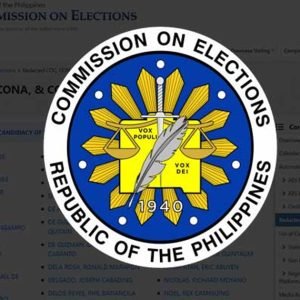
Dear PAO,
I have been a public utility jeepney driver for a long time in Metro Manila. I have heard on the radio a declaration of one politician that only the Land Transportation Office (LTO) has the sole power to confiscate a driver’s license in case of a traffic violation. I have been apprehended multiple times by traffic enforcers from both the Metropolitan Manila Development Authority (MMDA) and local government units (LGUs) in Metro Manila. In these instances, either my license was confiscated or I was issued an ordinance violation receipt (OVR). Am I correct in my assumption that the LGUs and MMDA cannot confiscate my driver’s license or issue an OVR for traffic violations, as this is the sole power of the LTO?
Bitoy
Dear Bitoy,
The three government agencies mentioned in your letter have powers related to traffic management. The MMDA derives its power from the following provisions of Republic Act (RA) 7924, the law creating MMDA, which provides:
“Section 3. Scope of MMDA Services. – Metro-wide services under the jurisdiction of the MMDA are those services which have metro-wide impact and transcend legal political boundaries or entail huge expenditures such that it would not be viable for said services to be provided by the individual local government units (LGUs) comprising Metropolitan Manila. These services shall include:
“xxx
“b. Transport and traffic management, which includes the formulation, coordination and monitoring of policies, standards, programs and projects to rationalize the existing transport operations, infrastructure requirements, the use of thoroughfares, and promotions of safe and convenient movement of persons and goods: provision for the mass transport system and the institution of a system to regulate road users; administration and implementation of all traffic enforcement operations, traffic engineering services and traffic education programs, including the institution of a single ticketing system in Metropolitan Manila. xxx
“Section 5. Functions and Powers of the Metro Manila Development Authority. – The MMDA shall: xxx
“f. Install and administer a single ticketing system, fix, impose and collect fines and penalties for all kinds of violations of traffic rules and regulations, whether moving or non-moving in nature and confiscate and suspend or revoke driver’s licenses in the enforcement of such traffic laws and regulations, the provisions of RA 4136 and PD 1605 to the contrary notwithstanding. For this purpose, the Authority shall enforce all traffic laws and regulations in Metro Manila, through its traffic operation center, and may deputize members of the PNP, traffic enforcers of local government units, duly licensed security guards or members of non-governmental organizations to whom may be delegated certain authority, subject to such conditions and requirements as the Authority may impose.”
Meanwhile, the Land Transportation Office (LTO) takes its power from Section 29 of RA 4136 or the Land Transportation Code:
“Section 29. Confiscation of driver’s licenses. – Law enforcement and peace officers of other agencies duly deputized by the Director shall, in apprehending a driver for any violation of this Act or any regulations issued pursuant thereto, or of local traffic rules and regulations not contrary to any provisions of this Act, confiscate the license of the driver concerned and issue a receipt prescribed and issued by the Bureau therefor which shall authorize the driver to operate a motor vehicle for a period not exceeding seventy-two hours from the time and date of issue of said receipt. The period so fixed in the receipt shall not be extended and shall become invalid thereafter. Failure of the driver to settle his case within fifteen days from the date of apprehension will be a ground for the suspension and/or revocation of his license.”
On the other hand, the power of LGUs emanates from Sections 447 and 458 of RA 7160 or the Local Government Code of 1991:
“SECTION 447. Powers, Duties, Functions and Compensation. – xxx
“(5) Approve ordinances which shall ensure the efficient and effective delivery of the basic services and facilities as provided for under Section 17 of this Code, and in addition to said services and facilities, shall: xxx
“(v) Regulate the use of streets, avenues, alleys, sidewalks, bridges, parks and other public places and approve the construction, improvement, repair and maintenance of the same; establish bus and vehicle stops and terminals or regulate the use of the same by privately-owned vehicles which serve the public; regulate garages and the operation of conveyances for hire; designate stands to be occupied by public vehicles when not in use; regulate the putting up of signs, signposts, awnings and awning posts on the streets; provide for the lighting, cleaning and sprinkling of streets and public places;
“(vi) Regulate traffic on all streets and bridges, prohibit the putting up of encroachments or obstacles thereon, and, when necessary in the interest of public welfare, authorize the removal of encroachments and illegal constructions in public places;”
Thus, the power of the LTO and MMDA to confiscate a driver’s license or issue traffic violation tickets is explicitly provided under RA 4136 and RA 7924, respectively. However, the same power was not provided under RA 7160 to local government units; hence, ordinances providing such sanctions for traffic violations in their area of jurisdiction, particularly in Metro Manila, are considered in contravention of the law. Consequently, local government units in Metro Manila are not vested with the power to issue OVRs or confiscate driver’s licenses for traffic violations on their own unless they are duly deputized by the LTO or the MMDA.
The presence of an ordinance providing for the said function will not change the situation. Basic is the rule that ordinances must not contravene an existing law. An ordinance which contravenes existing laws is invalid. As declared in Federation of Jeepney Operators and Drivers Association of the Philippines, et al. v. Government of Manila City et al., GR 209479, July 11, 2023, penned by Associate Justice Alfredo Benjamin Caguioa:
“Well-established is the rule that for an ordinance to be valid, the following requisites must be met: the ordinance (i) must not contravene the Constitution or any statute; (ii) must not be unfair or oppressive; (iii) must not be partial or discriminatory; (iv) must not prohibit, but may regulate trade; (v) must be general and consistent with public policy; and (vi) must not be unreasonable.
“Having established that the common provision [Procedure in the Issuance of Ordinance Violation Receipt (OVR)] of the assailed Ordinances is inconsistent with the MMDA Law, the said provision accordingly fails to hurdle the test as laid down above. Consequently, the common provision found in each of the Ordinances of the LGUs in Metro Manila shall unavoidably be considered stricken off and deemed inoperative.”
We hope that we are able to answer your queries. This advice is based solely on the facts you have narrated and our appreciation of the same. Our opinion may vary when other facts are changed or elaborated.
Thank you for your continued trust and support.
Editor’s note: Dear PAO is a daily column of the Public Attorney’s Office. Questions for Chief Acosta may be sent to [email protected].






